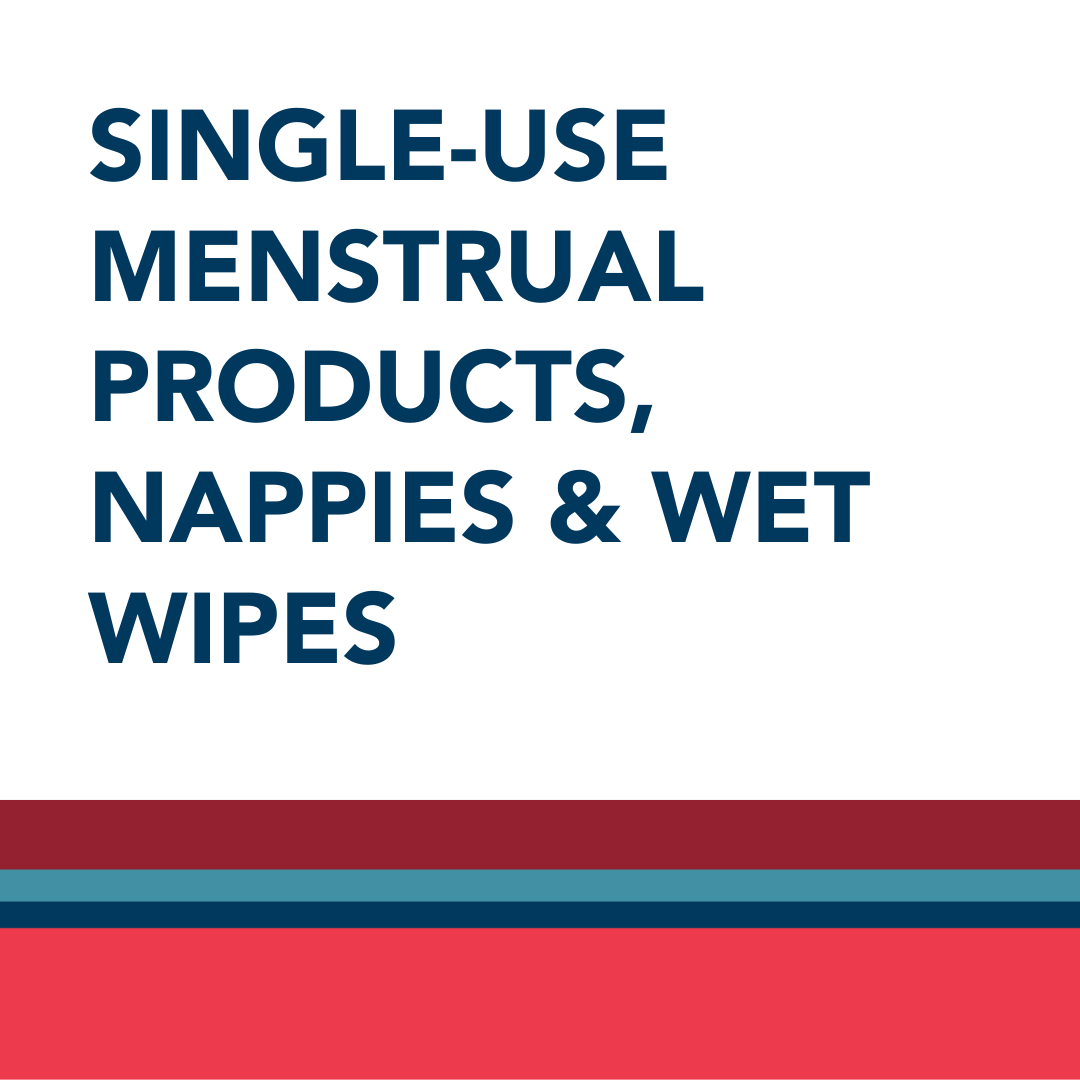No more shame: a call for the EU and Member States to adopt an ambitious strategy on single-use menstrual products, nappies and wet wipes

FOR IMMEDIATE RELEASE: Brussels, 12th February 2020
Single-use menstrual products, nappies and wet wipes create serious environmental, economic and social impacts throughout their lifecycle, from the production phase to the end-of-life. A pioneer study on the environmental and economic impacts of single-use menstrual products, baby nappies and wet wipes shows how the current waste generation of single-use menstrual products, baby nappies and wet wipes accounted for approximately 7,832,000 tonnes within the EU-28 in 2017 alone. This waste is currently not separately collected for recycling, ending up in incineration facilities (13%), at landfills (87%) or littered into the environment.
The study also exposes the “hidden” costs behind menstrual, baby nappy and wet wipe waste. Estimates show that the costs of unblocking sewage debris from pipes (due to the inadequate flush of single-use menstrual products and wet wipes) equates to between €500 and €1,000 million per year for the European Union. The cost implications for consumers are also highlighted: by switching to a menstrual cup instead of single-use tampons or pads, consumers could save between €18 to €119 per person annually, with lifetime savings exceeding €4,400.
A real circular economy as envisioned by the EU is only possible if enough support is given to reusable models and post-consumer recycling. To accomplish the reduction of waste coming from these products and make the transition towards a circular economy, a set of specific actions and measures have been proposed in a follow up study on existing measures and policy recommendations to minimise the impact of menstrual products, nappies and wet wipes across Europe.
Such measures are also highlighted in a policy briefing, where we call the European Commission to adopt a strategy to increase the reusable market for menstrual products, nappies and wipes, while simultaneously ensuring that the single-use equivalents are collected separately and recycled effectively. Some of the key recommendations include setting up a reuse target of 30% by 2030, to be increased to 60% by 2040 combined with a separate collection target for recycling of the remaining single-use menstrual items, wet wipes and nappies of 40% by 2025, 70% by 2030 and 90% by 2040.
Economic incentives, such as Extended Producer Responsibility (EPR) schemes coupled with eco-modulation of fees, should also be one of the cornerstone of this strategy by helping financing the transition from single-use to reusable systems through the implementation of local washing systems for reusable nappies, for instance.
“Within the current EU legal framework, there is no specific regulation addressing the waste management (collection, treatment and final disposal) of these products and no legal measure exists to support effective circular systems – such as reusable models and closed-loop recycling processes. To achieve the EU Circular Economy objective, a legal framework for these products needs to be created to assure that only safe, circular and sustainable products are placed on the market, while at the same time allowing single-use products to be effectively collected and recycled.” Commented Larissa Copello, Consumption and Production Campaigner, Zero Waste Europe.
“In recent times, there has been growing awareness about the negative consequences of the current production and consumption model of single-use plastics, but so far, the high environmental and economic impacts caused by single-use menstrual products, nappies and wet wipes have not been put on the table. Beyond just blaming consumers for the use of these products, the implementation of policies, from an environmental and gender perspective, to regulate these products and promote reusable and toxic-free solutions are crucial to make progress towards a zero waste society“. Commented Alba Cabrera, Studies Manager, Rezero.
ENDS
Notes
Download the study on environmental and economic impacts
Download the study on legal measures
Press Contacts:
Larissa Copello, Consumption and Production Campaigner, Zero Waste Europe
Alba Cabrera, Studies Manager, Rezero
Agnese Marcon, Communications Coordinator, Zero Waste Europe
[email protected] +32 (0) 456 078 038